Middle Schoolers Explore the Rule of Law at Second Annual Mandell-Boisclair Justice Camp
Through hands-on site visits, lively debates, and conversations with legal and political leaders, 34 Rhode Island students received a transformative learning experience envisioning their roles as future changemakers.
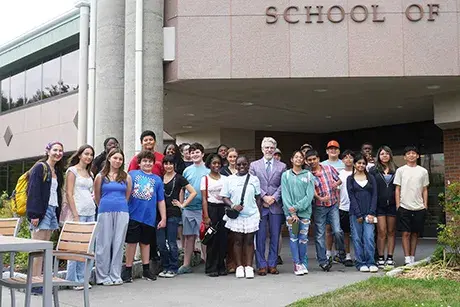
PROVIDENCE, R.I. – At Roger Williams University’s Providence campus, Rhode Island middle schoolers spent a week immersed in the powerful idea that one person – armed with knowledge, courage, and compassion – can help make the world more just.
Now in its second year, the Mandell-Boisclair Justice Camp has expanded to two camp sessions, reaching 34 students in grades six through nine with a hands-on program about law and civic life. Conceived by RWU School of Law professors to inspire future advocates, the camp brought together 17 students newly introduced to the law for the first session and another 12 students who had completed the camp last year and returned for a more in-depth and different program during the second weeklong session. All received an immersive experience in civil liberties, environmental justice, voting rights, and constitutional law, featuring conversations with judges, attorneys, faculty, and state leaders that explored the many ways law can be used to advance justice.
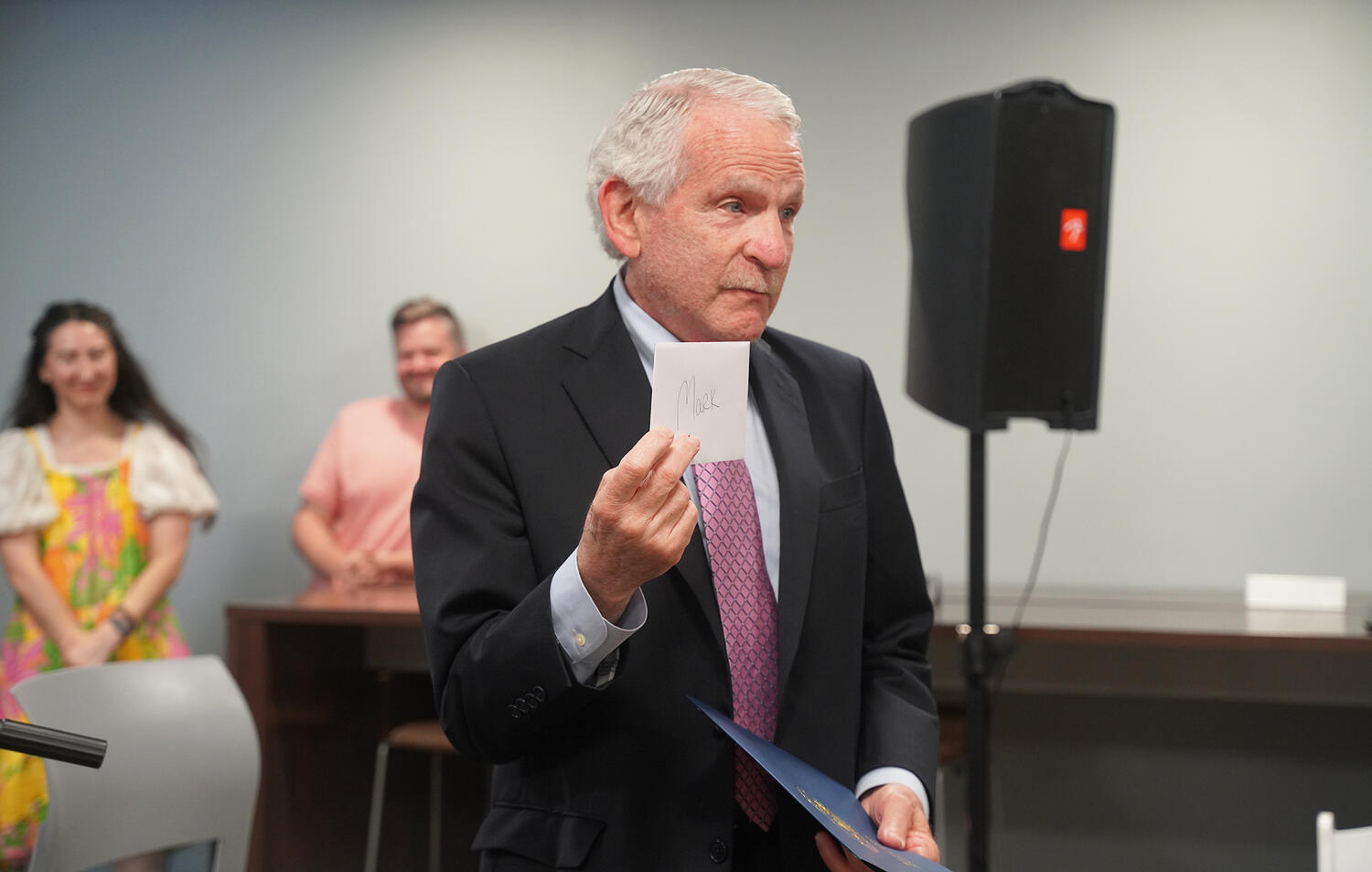
The program opened with remarks from personal injury attorney Mark Mandell, who, along with his wife, Yvette Boisclair and their son Zachary Mandell L’11, sponsors the camp and ensures free attendance for all participants. “This camp is about believing in yourself, caring enough to make a difference, and recognizing that anything is possible if you’re ethical and you work hard,” Mandell said. “At a time when equal justice for all is under attack across our country, we want to create a space that respects social justice.”
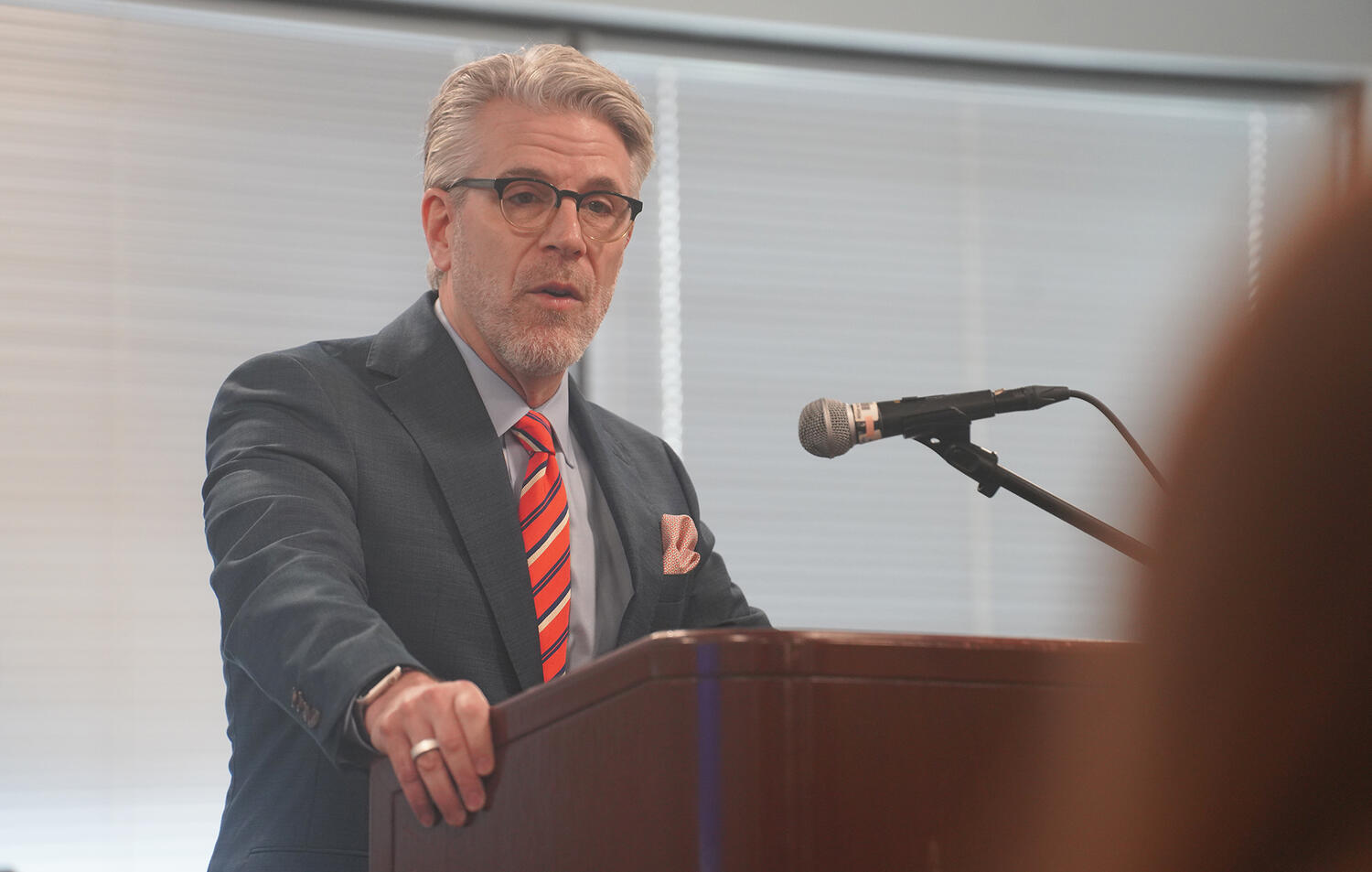
Addressing the campers, RWU School of Law Dean Gregory W. Bowman encouraged them to see the law not just as a set of rules, but as a powerful tool for change. “This camp is one of the neatest, most exciting, most rewarding things we do at the law school because it’s all about how lawyers identify and address wrongs to help make the world a better place,” he said. “We do what we do as lawyers to protect and advance and improve law, and to right wrongs – one case, one project, one client at a time.”
Bringing Law to Life
One of the camp’s defining features is its immersive, on-location learning. Students traveled to several historical and political landmarks, examining how legal systems evolve, who they protect, and when they fall short.
At the Station Fire Memorial Park, campers held a solemn flower ceremony honoring the 100 lives lost in the 2003 fire. Prior to their visit to the memorial, they learned about the landmark lawsuit that procured a $176,000,000 settlement on behalf of victims and their families from Mandell, one of the lead attorneys on the case. They also met with Gina Russo, a survivor and president of the Station Fire Memorial Foundation.
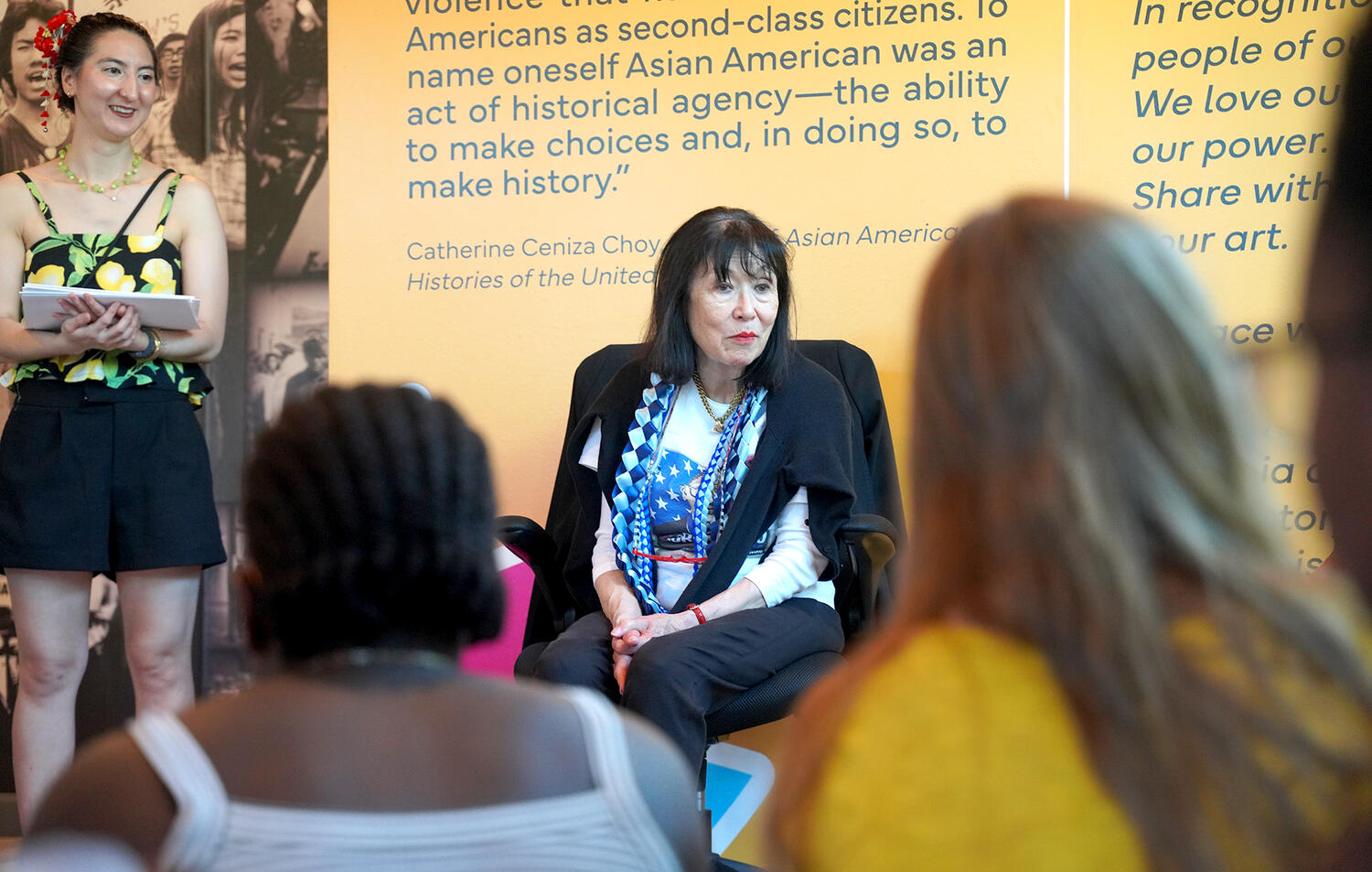
At Providence’s newly opened AAPI History Museum, students had the rare opportunity to learn from Karen Korematsu, founder and president of the Fred T. Korematsu Institute and daughter of the late civil rights icon Fred Korematsu. Speaking in a gallery filled with stories of exclusion and resilience, she reminded students of the enduring relevance of her father’s legacy.
“This kind of education is essential because, if we don’t acknowledge the intergenerational trauma in this country and try to make some kind of apology or compensation, these issues will just keep continuing,” she said. Korematsu spoke about her father’s landmark legal challenge to Japanese American incarceration during World War II and how his federal conviction was eventually overturned decades later. “That’s why my father’s story matters; he stood up when the government was wrong, and he was right to take a stand. One person can make a difference, and when you start doing things for others – not just yourself – that’s how real change happens.”
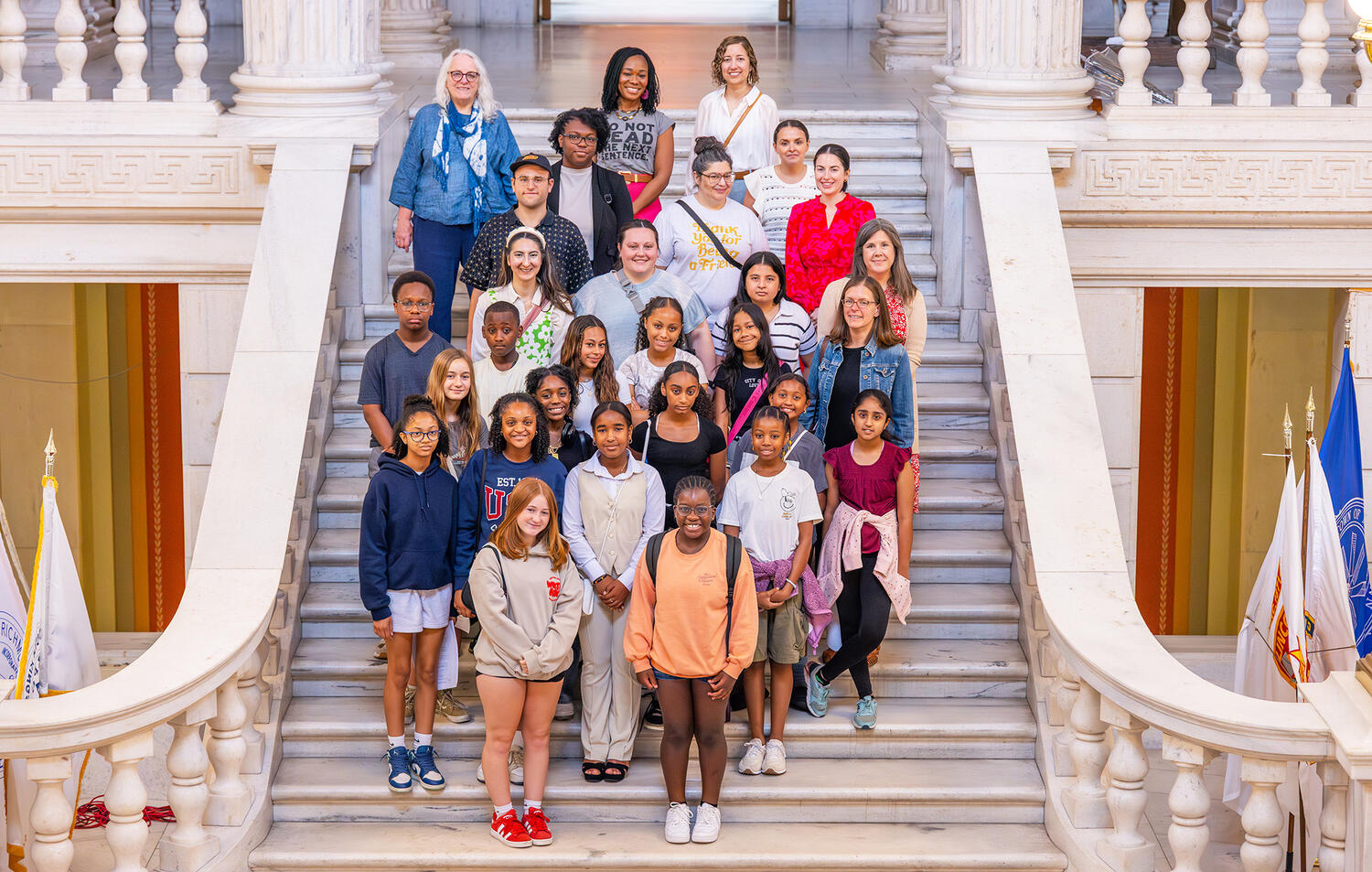
At the Rhode Island State House, campers sat in the seats of power – literally. On the House floor, they participated in a mock debate and learned firsthand how laws are introduced, debated, and passed. Between sessions, they connected with State Representative June Speakman (RI-68), as well as Marcela Betancur, Executive Director of the Latino Policy Institute, and Weayonnoh Nelson-Davies L’07, Executive Director of the Economic Progress Institute, gaining insights into the real work of governance and the importance of bringing community voices into public service.
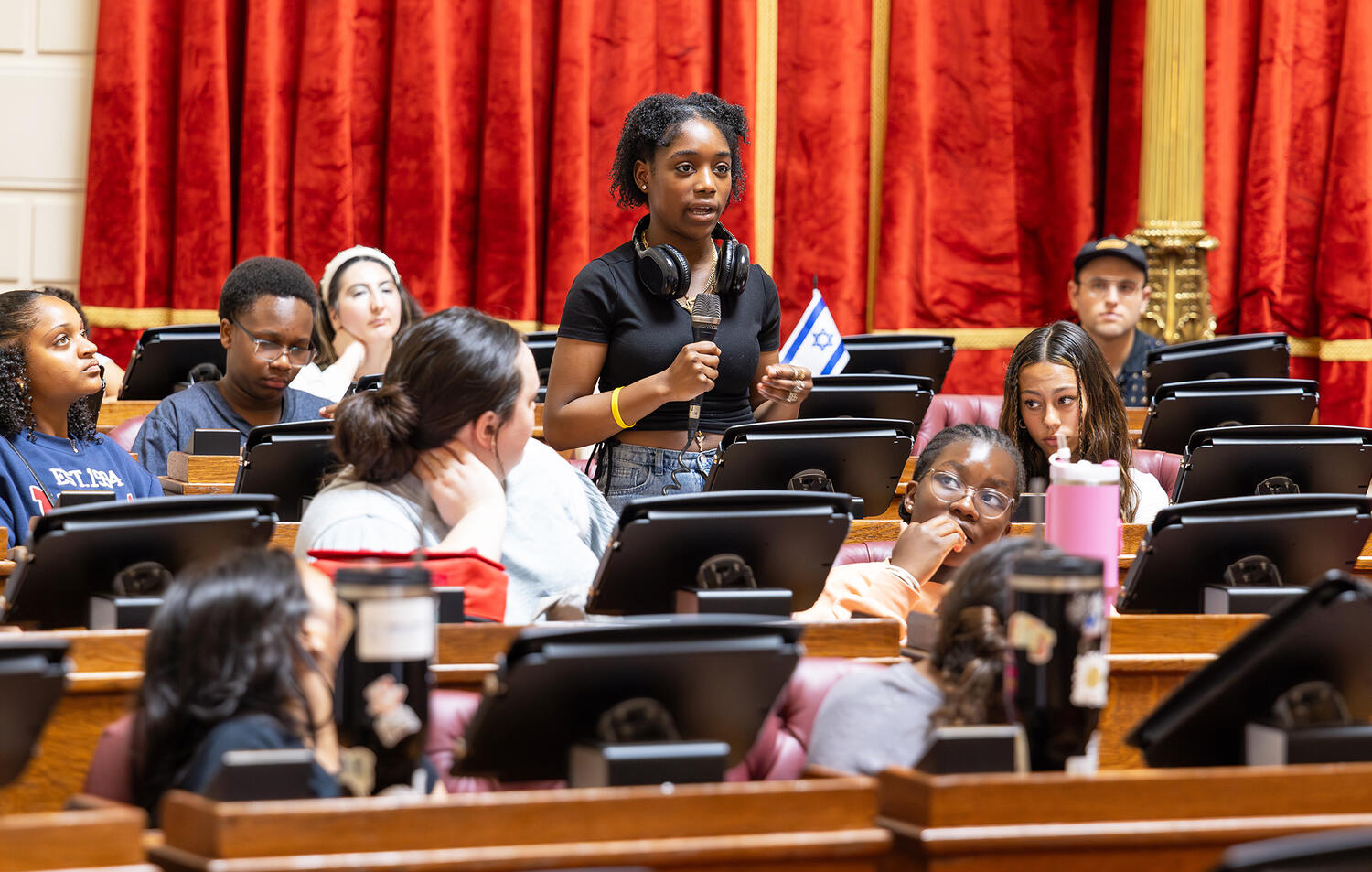
For Milly, a rising eighth grader at Excel Academy, the site visit underscored just how complicated, but crucial, our legal systems are. “Our laws aren’t always just,” she said. “Laws are important if we want justice, but we need to find a balance – and a lot depends on who is making the laws and what their intentions are. It’s good that America has a system where laws have to be passed by many people before they become official, but there are still laws that don’t benefit everyone or, honestly, just don’t make sense.”
Students also toured the Rhode Island Superior and District Courts, where they were welcomed by state Associate Justice Linda Rekas Sloan, the first Asain American appointed to the courts, who offered a glimpse into how laws are interpreted and upheld.
Finding Your Voice
One of the camp’s most engaging activities was the formal student debate, where campers tackled timely constitutional questions. Moderated by Kim Kalunian, anchor and reporter for WPRI 12, the event challenged students to think critically and construct arguments with evidence.
Among the most spirited exchanges was the debate over whether the voting age in the United States should be lowered. Ariyah, a rising sixth grader at The Compass School, advocated in favor, citing successful international models such as Argentina, Austria, Brazil, Ecuador, and Scotland. “If young people are able to vote, it should encourage older people to get into the habit of voting as well,” she said. “If the government can impact young people’s lives, young people should also be able to impact the government.”
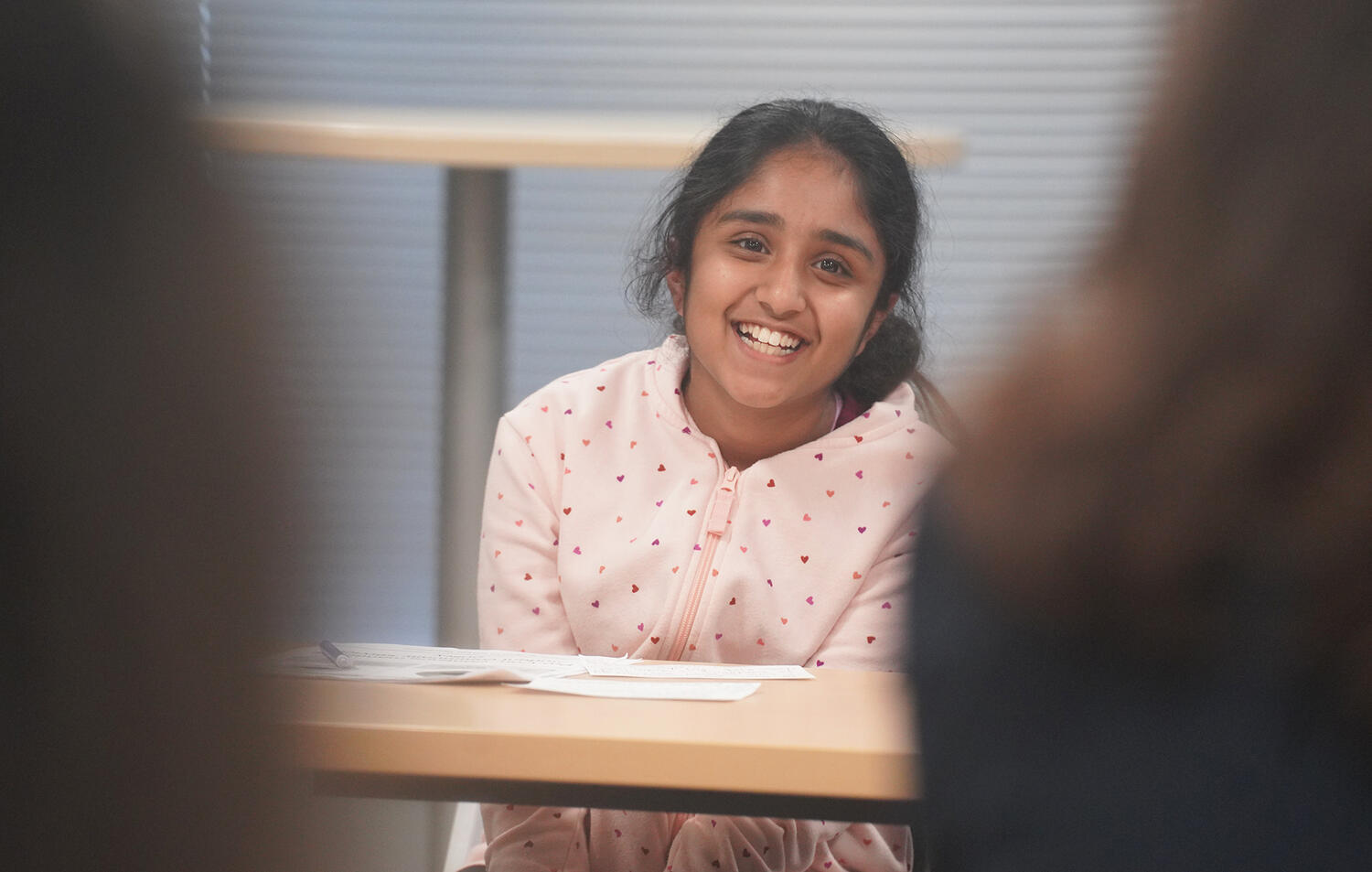
Elena, a rising seventh grader at Nathan Bishop Middle School, argued against lowering the voting age, citing low voter turnout among young adults. “Some people think teens would vote if they had the chance, but the facts do not support that,” she said. “Even though 16- and 17-year-olds aren’t allowed to vote, we can still get them ready by getting them involved in politics and teaching them more about voting.”
Campers also weighed in on whether 50 hours of community service should be mandatory for high school graduation. Proponents argued that civic engagement helps students connect with their communities and build empathy, while opponents raised concerns about accessibility and whether volunteering should ever be required.
A third debate centered on whether schools should be allowed to search students’ phones and social media, a particularly timely topic as the Rhode Island General Assembly passed legislation this summer requiring school districts to create cell phone use policies by next year. Campers delved into constitutional questions surrounding the Fourth Amendment and student rights, referencing legal precedents and real-life cases. Some emphasized the importance of protecting privacy and preventing overreach, while others argued that schools need clear authority to ensure safety and accountability.
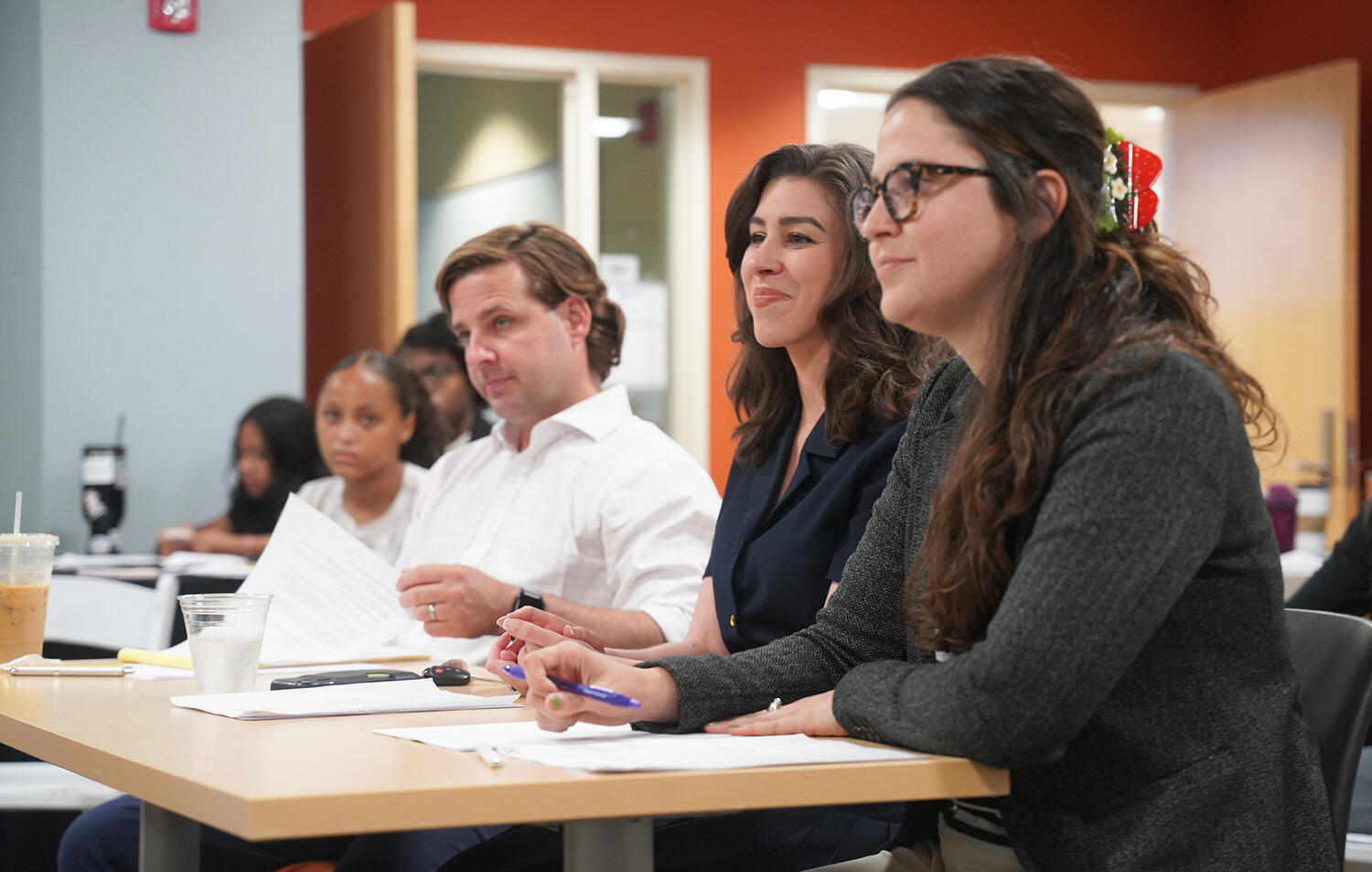
Panelists Carla Aveledo L’22, policy liaison for the Rhode Island Cannabis Control Commission, and John Meara L’11, an attorney with Mandell, Boisclair & Mandell, Ltd., provided feedback after each round.
“All the teams were clearly well prepared, with strong evidence to back up their arguments – something that’s crucial in court,” Aveledo said. “I saw great eye contact, thoughtful wrap-ups, and a real ability to think on your feet when faced with difficult questions. That kind of confidence and adaptability is such an important skill, no matter where your path takes you.”
Carrying Justice Forward
At the end of each camp session, students gathered for a graduation ceremony celebrating their growth as future advocates and reflecting on what they learned about the legal system and themselves.
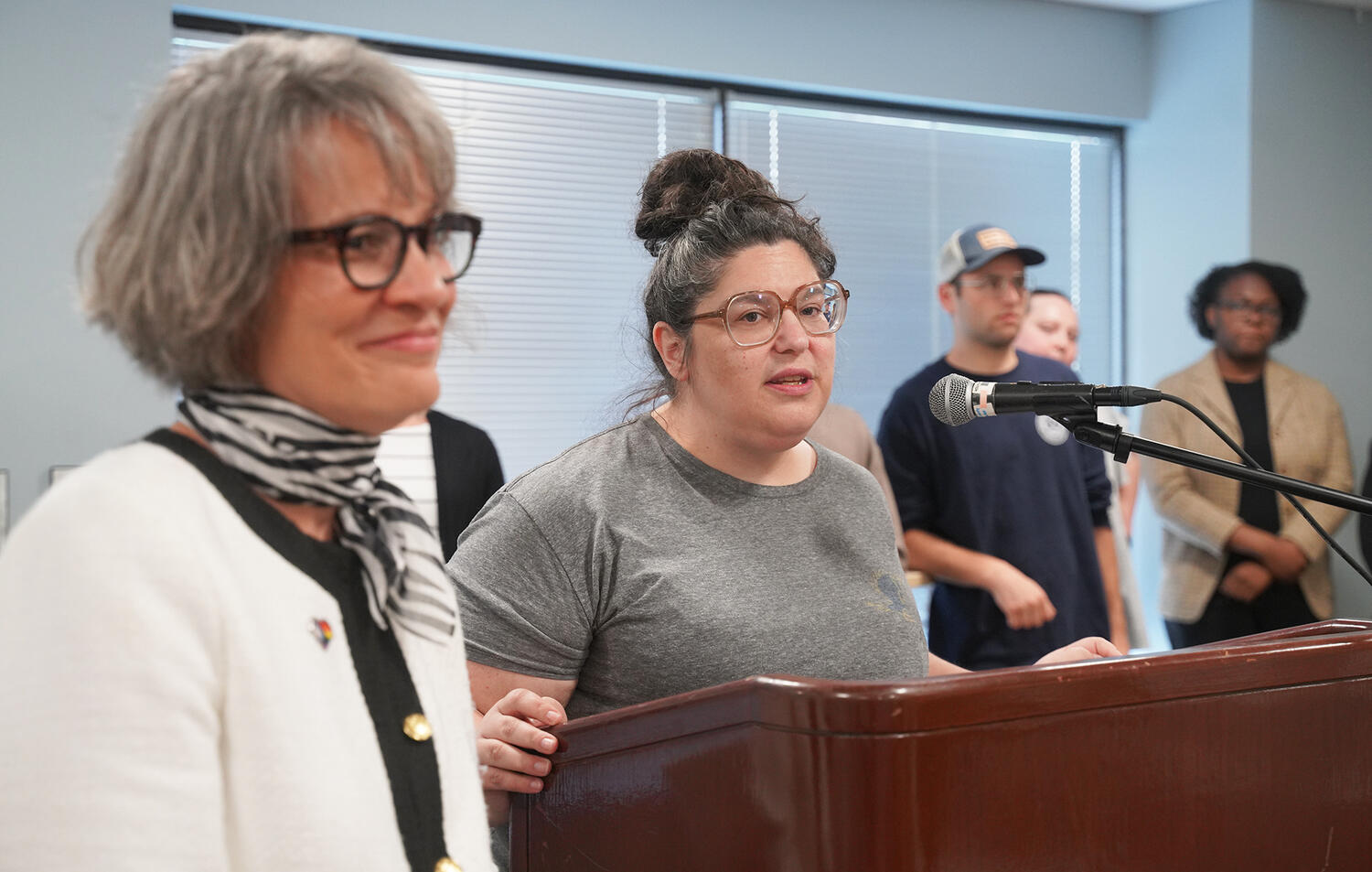
Nicole P. Dyszlewski, Assistant Dean for Academic Innovation and Teaching and a Professor, offered a recap of the campers’ milestones, from conversations about civil litigation and civil rights to courtroom visits and an unforgettable debate. “Students learned that using their voice for justice matters, because history is full of voices used for injustice. From learning how civil litigation can change lives to hearing from civil rights leaders, visiting the State House, and sitting in real courtrooms, our students saw how law and advocacy intersect with real-world impact.”
To mark their accomplishments, each student received a Certificate of Achievement from the RWU School of Law, as well as Certificates of Special Recognition from Governor Daniel McKee and U.S. Representative Gabe Amo. These honors recognized the students’ participation in the Mandell-Boisclair Justice Camp and their commitment to learning about the importance of fairness within the American judicial system.
The Mandell-Boisclair Justice Camp is another example of the Mandell and Boisclair family’s ongoing support of RWU Law’s commitment to equity and access within the legal field. In 2022, Boisclair and the Mandells made a generous gift to the School of Law that launched a scholarship fund aimed at diversifying the legal profession and expanding access to justice in Rhode Island. Their $250,000 donation – paired with matching contributions – will help provide $750,000 in scholarships to future law students.
This powerful commitment to inspiring and training changemakers who will make a difference in the world lies at the foundation of RWU Law’s educational programming and its deep connections across the state’s bench and bar as the only law school in Rhode Island.
“The rule of law matters – it matters to judges, to lawyers, and to everyday, ordinary people,” Rhode Island Supreme Court Justice Melissa Long told the campers. “This week, you began learning how to use your voices, participate in democracy, and advocate for what’s right. I hope you carry those lessons forward, because you never know whose life you might impact when you raise your hand and stand up for justice.”
